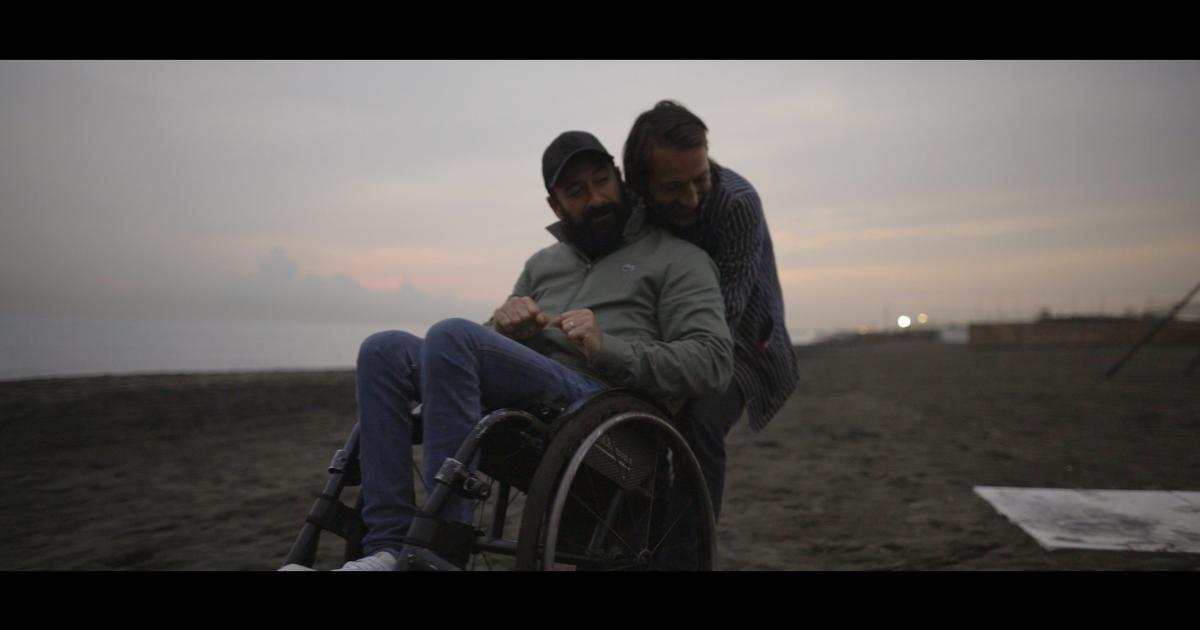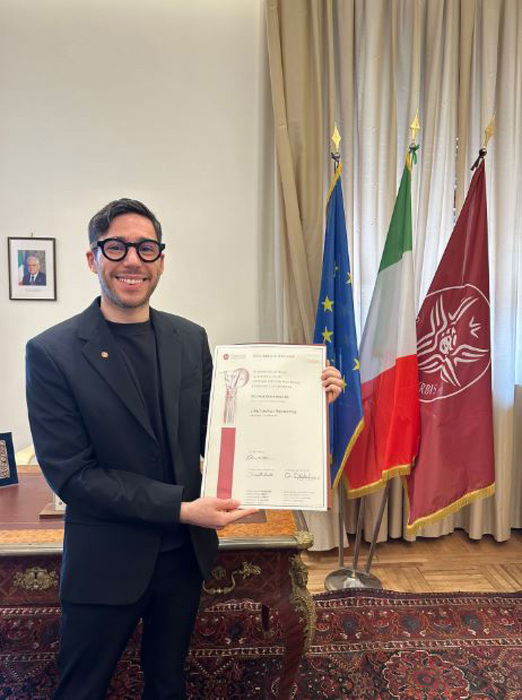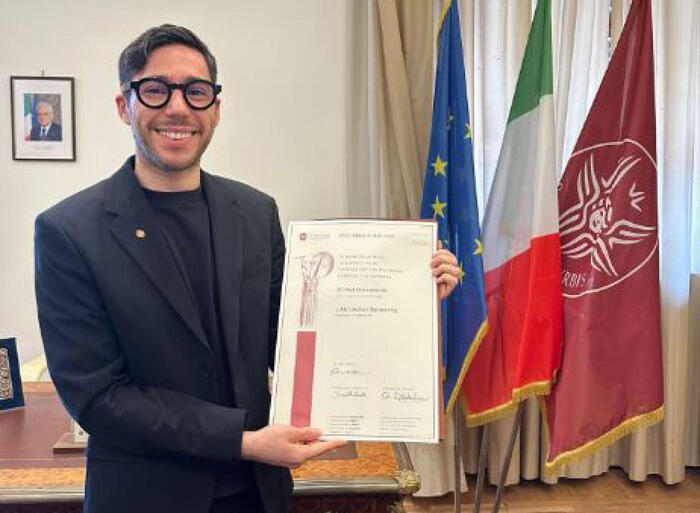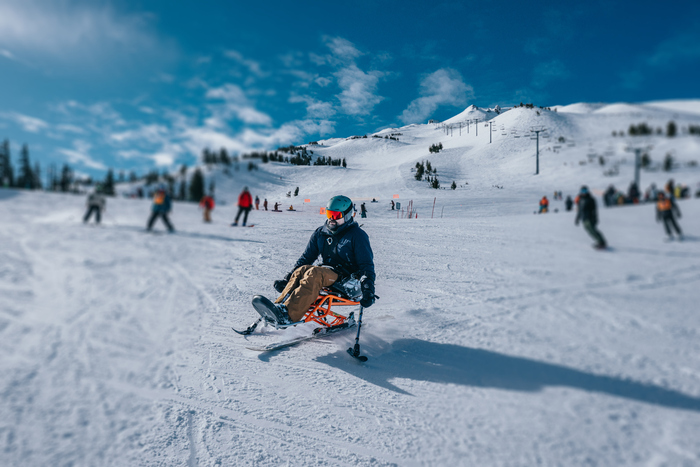Did you know that just over a century ago, people with intellectual disabilities were euthanized shortly after birth?
Do you know Rosemary Kennedy, the long hidden sister of JFK, the former president of the United States, because suffering from mental disorders?
In 1h37, the documentary
We are people
aims to raise awareness about disability.
With the common thread of the link it maintains with the practice of sport.
Directed by Philippe Fontana and produced by the Paralympic wheelchair tennis champion in Beijing (2008) Michaël Jéremiasz, this film, by turns edifying, moving, implacably critical, surprising, multiplies the lines of thought.
Sometimes even to the point of being frustrating, so great is the desire to know more about certain stakeholders,
"
The desire with Philippe was to make available, in the public space, a tool that tells this little-known story and gives keys to understanding that sport does not only consist of full stadiums and rich footballers
", explains Jéremiasz .
“
Sport is a powerful tool, the impact and power of which are still poorly measured in our societies.
With regard to people with disabilities, it is a political and social tool, it is a public health issue.
This is what we wanted to tell.
This issue is all the more important since more than a billion people on earth live with disabilities, ie 15% of the world's population.
Spent the first fifteen very didactic minutes to resituate the context, particularly from a historical point of view, We are people delves into the heart of its subject through various speakers, unknown to the general public but who all deserve to be known, such as the jumper in height Arnie Boldt, navigator Damien Séguin, snowboarder Amy Purdy…
The list is long, and at the same time so short of these champions sometimes glorified with condescension or paternalism.
"
Too often, there are only two approaches to disability: either extremely compassionate, or conversely we make Paralympic athletes like superheroes
", confides the tennis player.
“
But there is almost never a happy medium.
We do not tell why access to sport for all is so important.
Why sport can literally change lives.
Top-level sport is only a niche.
And this one to continue, always with the same conviction and the same passion:
Sport is above all a tool of freedom.
Of course, the performances of both are impressive.
To see a blind person able to run errands in the middle of the forest for ten hours in total autonomy is incredible.
But sport is not just that.
What I remember from my career as a high-level athlete is not only the performance, the titles, but all the doors that sports practice has opened to me.
Everything she allowed me to put in place in my life as a man, to regain self-confidence, to discover my new limits, to become independent.
»
In the documentary, it's my little story that serves the big one.
Michael Jeremiasz
From the pioneers who were the deaf before the previous Games in Paris in 1924 to the next ones which will be held in the City of Light in two years, the documentary explores a century of sports practice seen through the prism of disability.
Disabilities to be more precise, so much the film starts from the individual Jéremiasz to speak about universal.
"
In the documentary, it's my little story that serves the big one.
That's why there are plenty of allusions to what I was able to experience, because I had this desire to also start from what I know to go further.
But there was no purely personal stake, except to start from my look, from my experience to offer the general public a reflection much broader than the itinerary of a single person.
This is also why we have dealt with the subject from an international point of view and without limiting ourselves to a single disability.
We wanted to have a more global approach.
»
Real superheroes?
Above all, Jéremiasz wanted to go beyond the extremes, in particular this approach consisting in making disabled sports champions superheroes: “
It took, to bring us to light, that the English, for the 2012 Olympic Games, created a campaign of "super humans" to present the Paralympic athletes.
As if we had superhuman abilities.
It worked well, so much the better.
But once that's been done, what do we do?
And above all, make us look like superheroes, okay.
But how do we explain that for us, it is sometimes more difficult to find a job or to go shopping than to have a gold medal.
So yes, we can be high-level athletes, capable of achieving incredible performances, but we are also excluded who cannot go with their children to certain places because they can refuse us access because they are not suitable.
We can arrive with friends at a nightclub and not be able to enter.
»
I can tell you that behind every Paralympic champion, there is his share of neuroses, of suffering, like any human being.
Michael Jeremiasz
And the 2012 Paralympic champion concluded: “
If we achieve incredible performances, it must be said, but not because we are handicapped but because the performance is insane.
Our daily life is not as beautiful as you want to see it.
Our daily life is not about winning a medal and showing incredible courage to have bounced back after a terrible life accident.
What defines us is not to have sublimated, in a certain way, what happened to us.
I can tell you that behind every Paralympic champion, there is his share of neuroses, of suffering, like any human being.
They are not superheroes.
They are just people who have worked very hard to succeed.
For the rest, they are like you, they may have problems with their couple or with their kids.
As long as we do
we will not be able to make people understand that we must appreciate our sporting performance for what it is, namely a sporting performance.
The rest of our life is a banality, apart from the obstacles that face us and our disability.
And if you are not responsible for what happens to us but for sure you can make our daily life much more pleasant and easier.
For me, that's the issue.
Which deserves even more than a 1h37 documentary, even if it's already a magnificent gateway.








